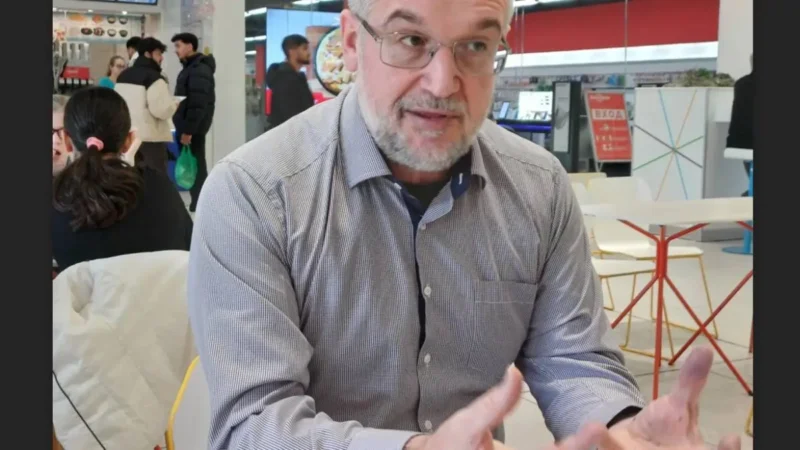
– If Bulgaria thinks strategically, we could turn the very miserable coal region of Maritsa East, with all its high mortality and low birth rates, into a centre of green energy research and development for all of Eastern Europe! These people have the skills, and there is the industrial infrastructure, including a dense energy network – says Dimitar Sabev, economist at the Economic Research Institute of the Bulgarian Academy of Sciences, in the second part of the interview given to Cross-Border Talks’ new project Found in Transition, specifically dedicated to industrial and social transitions in Europe and beyond.
Read the first part of the interview:
You estimated the actual number of people potentially affected at no more than 35,000. Do you think that these jobs could be replaced by agriculture, tourism, small services and small or medium-sized enterprises? Or will there have to be new industrial investment?
Agriculture in this region is already working at almost full capacity. And what kind of tourism could develop in a hot area without large bodies of water, forests and mountains? There are other, perhaps better, options. The first is the closure of the mines themselves. It requires the rehabilitation of the land and could directly absorb several thousand people.
In addition, we have a unique situation in the Maritsa East region – probably 15,000 people with industrial skills will soon be looking for new jobs. This is a huge industrial potential, a real asset for the Bulgarian economy. The Bulgarian labour market now needs people with industrial skills. A responsible politician would do his best to create or restore industrial capacity in the place of obsolete coal.
In this context, a colleague of mine told me an amazing story yesterday. There is a new municipal solar park in Radnevo – a large solar park that could meet the energy needs of the entire municipality, although it could not replace the thousands of jobs in the mining industry. My colleague called the human resources manager of this solar park and asked: “Are you hiring?”, pretending to be a job applicant. It turned out that there were many vacancies and the company was willing to hire the potential candidate over the phone. The locals still working in the mine joined together to boycott the company.
A nationwide representative poll in 2023 showed that no more than 20% of Bulgarians support the closure of coal mines. People are constantly being told, in every possible way, that the green transition will make them worse off. Coal-fired power plants claim to produce the cheapest energy – which is far from the truth. But people have got used to thinking that coal energy is cheap. As a result, people vote against their material interests by supporting political parties that promise eternal support for coal-fired energy. The fact is that coal is now very expensive. The state-owned mines will make a loss of 70 million euros in 2023. Parliament has promised 500 million euros over the next four years for land reclamation, with additional funds to pay workers’ salaries.
Alternatives for regional employment are emerging here and there, including in green energy production. Salaries may be 20 or 30% lower than in the coal sector, but they are still above the national average. But coal workers do not want the alternatives. Obviously their employers and trade unions are misleading them.
But the process of just transition has actually begun. There is the Just Transition Fund, which, for example, finances projects to insulate houses. There are some companies that are switching to renewable energy, like renewable electricity, like solar panels.
Yes, that is true. The situation may not be as bad as I made it out to be. I’m just thinking about what could happen if we were to think strategically and take measures such as building industrial parks and giving loans to the engineers who are now employed in the coal sector. These are experienced and qualified professionals. They have their PhDs and Masters, some of them from foreign universities. These people could be encouraged to engage in green energy entrepreneurship.
If our country thinks strategically, it could turn this very miserable coal region of Maritsa East, with all its high mortality and low birth rates, into a centre of green energy research and development for all of Eastern Europe! These people have the skills, and there is the industrial infrastructure, including a dense energy network.
Significantly, the price of land in the region is high, but no one is selling. Nor do the central authorities support the building of independent solar parks there, expecting that the closure of coal-fired power stations will create a big business, drive up the price of land and make huge profits. This is a strange situation for a depressed region.
Yes, we are moving towards a green future, but not in a smooth or fair way. First, Bulgaria strongly opposes the green transition, then it jumps straight into the green transition, while still doing everything possible to stop the green transition… And yet we all know that it will happen anyway. But everyone wants to make a lot of money out of it, especially the politicians. The same thing happened with the first national green energy push, with its feed-in tariffs. It is well known that many politicians, including those from parties opposed to the green transition, installed solar and wind farms in Bulgaria in 2010-2011, benefiting from the preferential prices for the first renewable energy producers. They cashed in on their insider knowledge.
Do you think there are other political interests in renewable energy? In fact, many high-ranking politicians and oligarchic interests from the fossil energy sector are transforming themselves into green energy entrepreneurs…
Of course, Kovachki is the most notorious among them.
If someone, theoretically, wants to modernise not only the energy sector but also the Bulgarian society, through de-oligarchisation, through a fairer distribution of political and economic power in society, in Bulgaria this is not happening through a just transition.
Definitely not. Perhaps somewhere in the world the transition to renewable energy is associated with democratisation, widespread property rights and widespread cooperation and participation at the local level. In our case it is the opposite.
We have dirty money. The fossil oligarchs know what is coming and they want to profit from it. Now they are stopping the advance, but when it will be impossible to stop it, they will join the transition – and they will be at the forefront.
I remember that in 2014, if I’m not mistaken, you wrote about the first case of a block of flats in Sofia that had solar panels installed on its roof.
Yes, it’s quite ubiquitous now.
Is there clear legislation and even government programmes to support the process of prosumer growth? How is that being developed? I don’t see a lot of communication about how you can do the same with your block.
There are still unresolved issues, especially for the energy cooperatives that sell energy to the grid. If you are a local producer, you can use some of the energy for yourself and sell the rest. But if you are, for example, an energy co-operative of people who have invested in it, you can use it for yourself but not sell it. So there are loopholes in the law, and that hinders the transition.
Romania, for example, has a lot of prosumers – around 150,000 by September 2024. Bulgaria is lagging behind. There are very few prosumers. I think Gabrovo might have cases of prosumers…
Gabrovo and Burgas, as far as I know.
But perhaps there is a reason why prosumers are not empowered or do not appear in Bulgaria.
This is exactly the strategy I was just trying to explain. Back in the 2010s, the first feed-in tariffs were given for green energy – small river turbines, wind turbines and solar panels. Many members of parliament benefited from this. People close to political power built the first renewables and collected the subsidies. The wider population had no information about the possibilities, there was no democratisation of the process. Now it is happening again.
There are different possibilities, even EU funds that will pay for part of the solar panels. But this information is blocked somewhere. If you insist on investing in renewable energy, there are multiple obstacles to overcome – dozens of documents to collect from different institutions, each of which costs money and time. The paperwork is just enough to sap your enthusiasm. This is not the way to ensure a just transition.
When we talk about a just transition, I think of it as a transition to greener energy, provided by a bundle of sources: wind, solar, biomass, waste, energy efficiency, all together. Replacing big coal with big solar is not a just transition. But that is what is happening now.
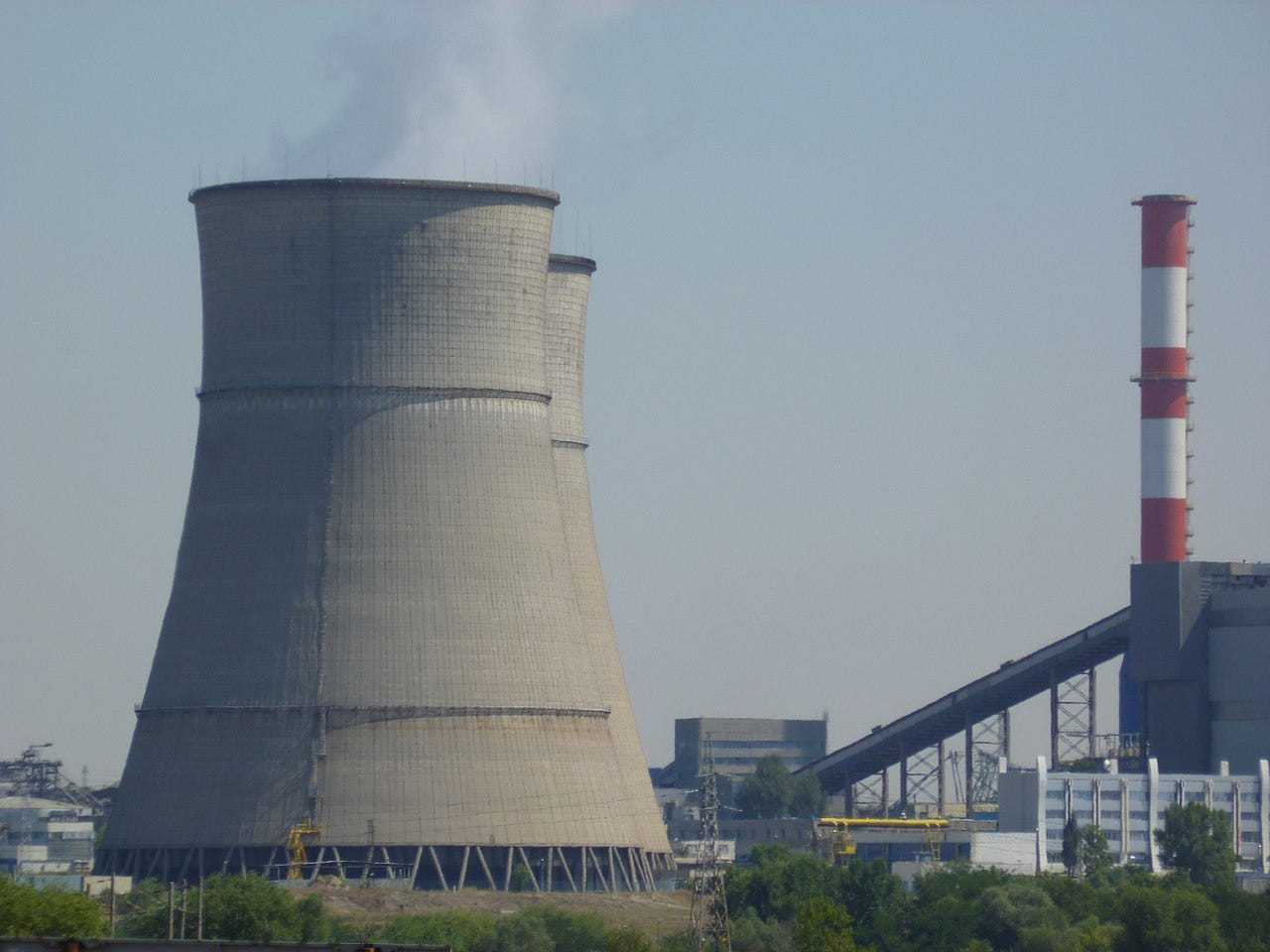
Thermal power plant Maritsa East 3. Photo by Igeo-Bulgaria, CC-BY-SA 3.0.
A just transition is a process that needs to be managed. As I understand it, it has to be done at the local level. There are some committees that bring stakeholders together.
But how much knowledge of how to manage just transition really exists at the local level?
And as far as I can see, what is happening now is just thermal insulation of buildings. They know how to do it and they do it. But as you just described a minute ago, just transition is supposed to be something very complex.
Capacities are indeed being built up at the local level. What we lack is a unifying, overarching set of rules – a state strategy for implementing a just transition. Bulgaria was once a communal society, and communism was the hardest blow to this natural community of ours.
Bulgaria was one of the first nations in Europe to join the cooperative movement at the beginning of the 20th century. We wanted to produce together and we were very good at building cooperatives. It was our natural way.
Then, with our Soviet-style industrialisation, including the creation of large coal plants, these community initiatives were destroyed. Now we might hope that the turn to green energy could strengthen our cooperation and local initiatives again. What we need is not Big Green Energy, but small and decentralised green energy – not only for the benefit of the economy and the environment, but also to rebuild our society.

This interview has been prepared with the support of Journalismfund, within the scope of a broader project concerning just transition in Bulgaria, Romania, Poland and Czechia in a comparative perspective.
Subscribe to Cross-border Talks’ YouTube channel! Follow the project’s Facebook and Twitter page! And here are the podcast’s Telegram channel and its Substack newsletter!
Like our work? Donate to Cross-Border Talks or buy us a coffee!

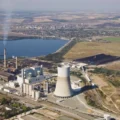
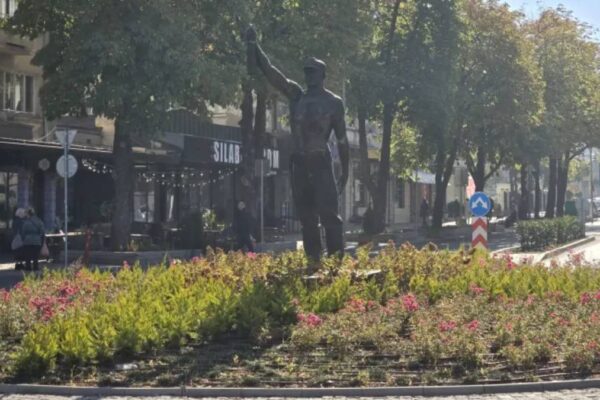
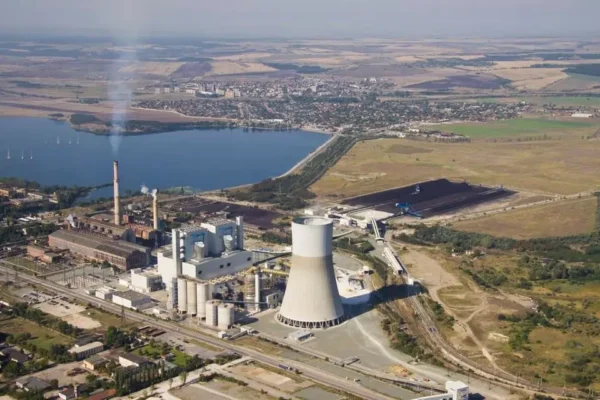
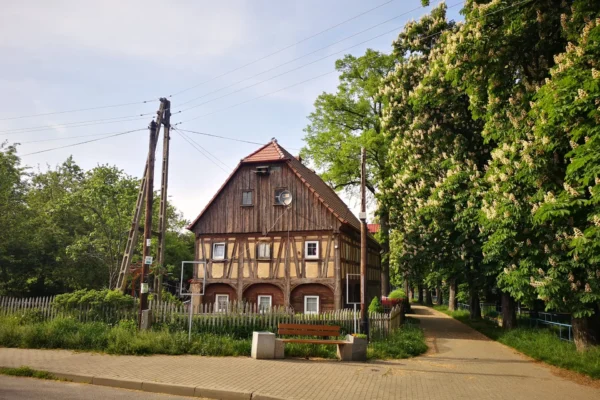
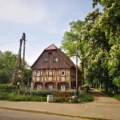
![Jiu Valley: is there a life after coal? [GALLERY]](https://www.foundintransition.eu/wp-content/uploads/2024/01/wieza-wyciagowa-i-chmury-scaled-1200x675-1-600x400.jpg)
![Jiu Valley: is there a life after coal? [GALLERY]](https://www.foundintransition.eu/wp-content/uploads/2024/01/wieza-wyciagowa-i-chmury-scaled-1200x675-1-120x120.jpg)
No comments
Dimitar Sabev: The heterogeneity of political and economic interests in Maritsa East carbon region creates obstacles to the just transition process - Cross-border Talks
24 November 2024[…] Dimitar Sabev: Bulgaria’s green transition is not transformative. It simply replaces Big Coal … […]